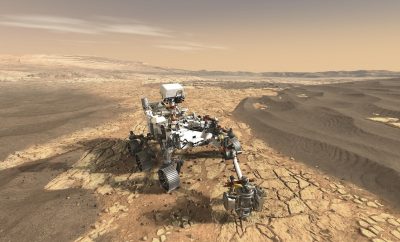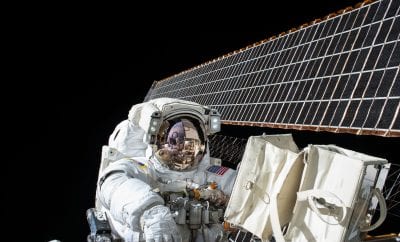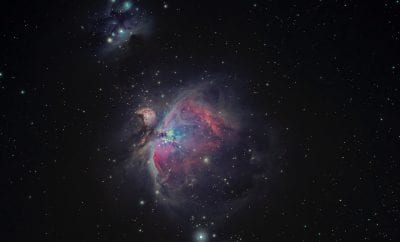Movies
Movie Review: The Martian
 Two years post the groundbreaking “Gravity” and a year after the stellar “Interstellar,” along comes “The Martian,” based on a best-selling book by Andy Weir and directed by Ridley Scott (“Prometheus“).
Two years post the groundbreaking “Gravity” and a year after the stellar “Interstellar,” along comes “The Martian,” based on a best-selling book by Andy Weir and directed by Ridley Scott (“Prometheus“).
During an exploration in Mars, a fierce sandstorm forces a team of astronauts, led by commander Melissa Lewis (Jessica Chastain, “Zero Dark Thirty,” “The Debt“) to abort their mission and evacuate the base. Astronaut Mark Watney (Matt Damon, “Elysium,” “The Adjustment Bureau“) is impaled by a satellite antenna, left stranded and presumed dead.
Mark is injured but makes it back to the base safely. Alone and alive, he quickly realizes his predicament. Millions of miles away from home, four years until another manned mission, severed communication and supplies to last only for 31 days. The odds are overwhelmingly unfavorable. He could suffocate in a toxic air, freeze to death, or die out of starvation or thirst. But instead of giving up, Mark decides to survive by making the best with what he has, while attempting to establish contact with NASA.
What happens next is what distinguishes “The Martian” with the other space movies. This one is rooted in ‘hard’ science, courses of actions done based on real science and technology. In a hostile, arid planet and encased in solitude, Mark uses his expertise as a botanist and resourcefulness to generate oxygen, create heat, produce water, grow crops and ration his limited food. And perhaps just as important, not losing his sense of optimism and wry humor to keep his sanity and spirit alive. In an overlong movie (2 hours and 21 minutes) filled with ‘science speak’ and solo time, Damon does an admirable job in moving things along in an engaging fashion.
On Earth, the wheels start turning when NASA realizes that Mark is still alive, even as officials try to keep the news from his teammates, en route home, still in space. Each communication brings both clarity and confusion. Even if they’re able to build and launch a supplies craft, time is not on their side. A setback occurs in Mars where Mark is no longer able to harvest more plants, which means he will run out of food.
Nobody is giving up, however. A lively group of really smart, passionate people working together tirelessly to develop solutions to rescue Mark. It is not without discord. It’s a matter of highly calculated risk; it could pay off big time or fail catastrophically, which would cost more lives. And to a lesser extent, a public outcry and end of the space programs.
Meanwhile, when news reach his crewmates, the rest of the astronauts pledge to launch their own daring mission, severely risky as it may be and against the officially sanctioned plan to bring one of their own home with them. The last stretch is a tense scene involving a remotely controlled, open-top capsule and spacecraft trying to make the right trajectory toward each other with astronauts hurling into space.
Since comparisons are inevitable, it’s worth mentioning that “Gravity,” “Interstellar” and “The Martian” are very different movies. “Gravity” is a singular space survival tale and as close you could probably get to being in space. “Interstellar” (also starring Damon and Chastain), a celestial tapestry of space exploration and heartfelt human story, is clearly a fantasy adventure with the time–bending element. “The Martian” is a space procedural drama, looking like a real planetary operation gone wrong in a not-too-distant future, plausible survival and rescue mission somewhere near the realms of possibility. Interestingly, it’s not a grim film. The filmmaker takes a unusual approach, telling the story with a lighter touch and air of levity.
Drawing upon science, intelligence, collaboration and imagination, it shows how the brightest minds can accomplish great things together. “The Martian” is a crowdpleaser, hopefully one that may inspire the next generation of space explorations.
Copyright (c) 2015. Nathalia Aryani
Nathalia Aryani is a film columnist and has a movie blog, The MovieMaven(sdmoviemaven.blogspot.com). Twitter: @the_moviemaven. She can be reached at indotransserv@gmail.com.





0 comments